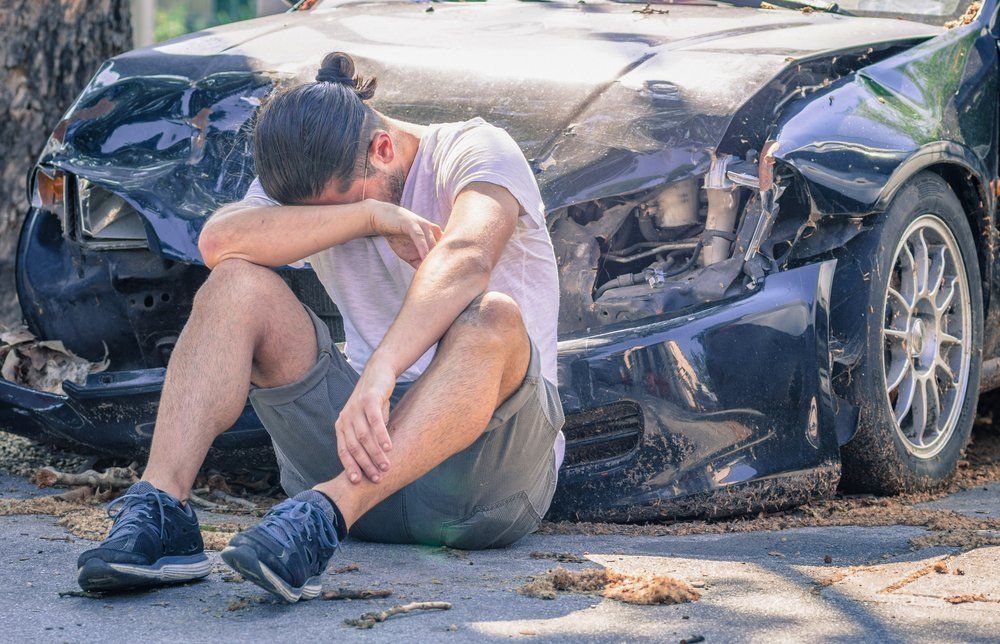Can You Get PTSD From a Car Accident?
What is PTSD?
PTSD isa mental health and anxiety disorder that often follows a traumatic event involving actual or threatened death, serious injury, or threat to the physical integrity of oneself or others. PTSD symptoms may include re-experiencing the trauma; unnatural avoidance of thoughts and situations associated with the accident; emotional unresponsiveness (detachment or reduction of emotional attachment); and heightened physical disturbance (insomnia or disturbed sleep; irritability, stress, depression, panic, etc.)
Can car accidents cause PTSD?
Motor vehicle accidents (MVA) are one of the leading causes of PTSD. A dozen or so studies conducted on MVA survivors indicate the presence of PTSD in nearly 25-33% of people during the 30-day period following the accident. In the United States, MVA-related PTSD affects about 2.5-7 million people annually. In 2004, 6.2 million traffic accidents reported to police departments in the U.S. resulted in 2.8 million injuries, some of them involving fatalities.
Some individuals are more at risk of developing MVA-related PTSD than others. The traumatic experience sticks with them longer, creating mental health issues ranging from emotional numbing to acute stress disorder.
Clinical studies have identified three sets of variables, or risk factors, that can help predict MVA survivors who are more likely to develop PTSD. These variables are:
1. Pre-accident variables: People having pre-existing mental disorders such as depression or anxiety, or lacking a proper social support system, are more prone to PTSD following a serious motor accident.
2. Accident-related variables: Loss of significant people in the accident; potential threat to life resulting from the accident; and amount of physical injuries, determine the likelihood of a person developing PTSD symptoms post-accident.
3. Post-accident variables: Rate of recovery from injuries; social support from friends and family; and re-engagement level in work and home post-accident are factors that determine an individual’s susceptibility to MVA-related PTSD.
If fatalities are involved in an accident, chances of accident survivors experiencing PTSD are increased. In such cases, additional issues are involved such as survivor guilt and misplaced notions of responsibility toward the accident victims.
How is PTSD assessed in MVA survivors?
If you are an MVA survivor experiencing some PTSD symptoms, you need to get assessed clinically for PTSD so that you can seek compensation for mental treatment of your symptoms. Three psychometrically-sound measures are commonly used in screening people for MVA-related PTSD.
1. PTSD Checklist (PCL): This checklist has 17 symptoms that are self-rated by survivors on a scale of 1 (not at all) to 5 (extremely). People who meet the cut-off score (either 50 or 44) are eligible for diagnostic interview.
2. The Impact of Event Scale (IES): This checklist has 15 items spread over two subscales- 7 items for intrusion and 8 items for avoidance. Each item is to be scored on a scale of 0 to 4. 0 for not at all, 1 for rarely, 3 for some time, and 4 for often. The cut-off score for ICS is 75.
3. PTSD Symptom Scale Self Report (PSS-SR): this checklist has 17 items to be rated on a scale of 1(not at all) to 4(5 or more times a week). The highest score is 51.
If your symptomatic score for any of these checklists is equal or more than the cut-off, you may be required to undergo a structured interview (CAPS). Here, questions will be asked regarding the frequency and intensity of your symptoms.
There are many national resources to help with PTSD throughout the United States of America. From The National Center for PTSD to the American Psychological Association, you can get information and literature from an array of qualified healthcare professionals. So whether it's chronic pain questions, cognitive behavioral therapy availability, or exposure therapy effectiveness, there are answers available. Medical attention extends beyond just dealing with your injuries. Mental health treatment from a mental health professional will improve your ability to cope with daily activities. Whether it's behavior therapy or cognitive therapy there is a solution for your PTSD.
Once, your PTSD condition is clinically diagnosed, you can claim damages after consulting with an experienced personal injury lawyer. If you think you or a loved one has suffered PTSD from a car crash recently,
contact us
or give us a call at 844-777-2529 to get a free consultation about the kind of claims you can file for. Alvin will be sure to follow up with you immediately.






























